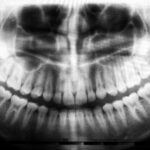Introduction
Migraines are not just ordinary headaches; they are intense, debilitating experiences characterized by severe throbbing pain, sensitivity to light and sound, and often accompanied by nausea and vomiting. With the continuous evolution of medical science, several effective treatments have emerged. This guide provides a deep dive into the latest advancements and practical tips to manage and treat migraines effectively.
Understanding Migraines and Their Impact
Migraines significantly affect the quality of life, impacting daily activities and productivity. Recognizing the symptoms early is crucial in managing this condition effectively. Typical symptoms include pulsating headache, sensitivity to light and noise, nausea, and sometimes visual disturbances known as aura.
Effective Strategies to Alleviate Migraine Pain
- Seek Refuge in a Calm Environment: At the onset of a migraine, it helps to retreat to a dark and quiet room. This practice reduces sensory stimulation, which can exacerbate headache symptoms.
- Use of Cool Compress: Applying a cool compress to the forehead, temples, or neck can help soothe the discomfort. The cold temperature helps reduce inflammation and numbs the pain.
- Medication Options: Over-the-counter (OTC) medications like ibuprofen or acetaminophen can offer quick relief for mild migraine symptoms. For more severe cases, prescription medications, including triptans, are effective but should be taken under medical guidance.
Natural Remedies and Lifestyle Modifications
Many migraine sufferers prefer natural treatments and lifestyle changes to minimize the frequency and severity of their headaches:
- Essential Oils: Lavender and peppermint oils are popular for their soothing properties and can be inhaled or applied topically.
- Acupressure and Acupuncture: These traditional techniques can reduce symptoms by applying pressure or needles to specific points on the body known to influence pain pathways.
- Dietary Adjustments: Identifying and avoiding food triggers can prevent the onset of migraines. Common triggers include aged cheeses, alcohol, caffeine, and processed foods.
- Hydration: Staying adequately hydrated is essential, as dehydration can trigger migraines.
- Consistent Sleep Schedule: Poor sleep can provoke migraines, hence maintaining a regular sleep pattern is beneficial.
When to Consult a Professional
Despite all efforts, there might be instances where migraines become more frequent or severe, and self-management strategies no longer suffice. In such cases, it is crucial to seek help from a healthcare professional who can offer a tailored treatment plan and explore other underlying causes of the condition.
Latest Advances in Migraine Treatments
The field of migraine research is dynamic, with new treatments emerging that promise better relief with fewer side effects. Among the latest developments are CGRP (Calcitonin Gene-Related Peptide) antagonists, a new class of drugs specifically designed to neutralize the peptide believed to cause migraine attacks. Additionally, neuromodulation devices, which use electrical impulses to alter nerve activity, have shown promise in preventing and treating migraines.
Conclusion
Migraines are complex and can be challenging to manage, but the evolution of treatment options offers hope. By combining lifestyle adjustments, natural remedies, and medical treatments, individuals suffering from migraines can find significant relief and improve their quality of life. Always consult with a healthcare provider to choose the safest and most effective treatment strategy for your specific condition.
For reporters and media professionals, staying updated with the latest in healthcare developments, such as migraine treatments, ensures comprehensive coverage and informed reporting. Keeping abreast of these advancements is essential for providing audiences with accurate and current health news.
Remember, the key to managing migraines effectively lies in understanding the condition, exploring various treatment options, and adopting a holistic approach to health.







